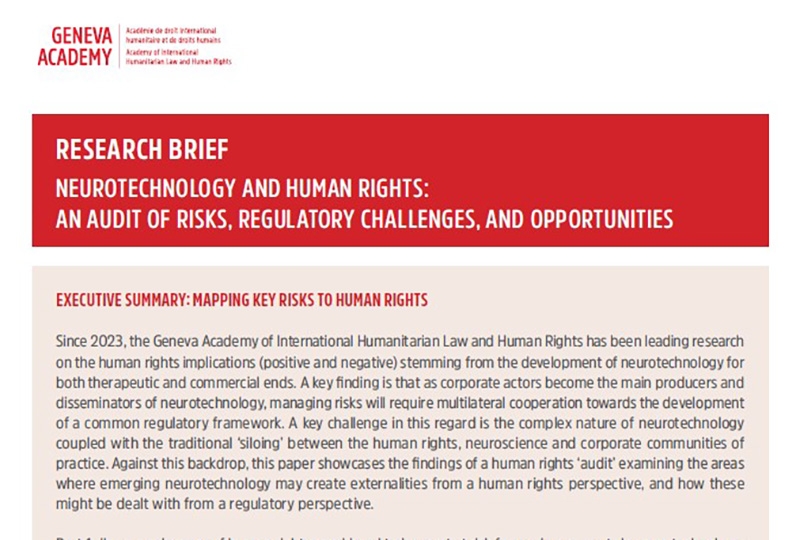27 March 2025
Authored by Dr Erica Harper and Timo Istace, our recent report, 'Neurotechnology and Human Rights: An Audit of Risks, Regulatory Challenges, and Opportunities' offers a deep dive into the human rights implications of neurotechnology, focusing on both therapeutic and commercial applications. It identifies six critical human rights areas at risk from neurotechnology advancements: discrimination, freedom of thought, privacy, rights within the criminal justice system, mental and bodily integrity, and workplace rights. For each of these, the paper outlines the relevant human rights frameworks, potential impacts, associated risks, and proposes actionable recommendations for governments to safeguard these rights.
Given the complex and rapidly evolving nature of neurotechnology, the authors emphasize the challenges in crafting effective regulatory frameworks. They highlight that while enforceable domestic laws are essential for protecting human rights, states face significant technical and political hurdles in developing such legislation. An arguably more feasible option is the development of non-binding guidance that could serve as a normative baseline for policy development, foster international coordination, and promote consistent approaches to neurotechnology regulation, while still allowing for advancement and innovation.
The paper also addresses ethical concerns, such as the risk of normalizing neuroenhancement and exacerbating ableism. It calls for a proactive approach to ensure neurotechnology does not inadvertently lead to societal harm, including the violation of fundamental rights or the creation of new forms of inequality.
Erica Harper explained, 'As neurotechnology advances, it is crucial that we safeguard human rights by fostering international cooperation and establishing a regulatory framework that ensures innovation does not come at the cost of dignity, autonomy, and equality. To effectively address the risks, policymakers must prioritize the development of a comprehensive regulatory framework that balances innovation with the protection of fundamental human rights, ensuring that technological progress does not undermine individual freedoms and equality.'









